How To Hire Employees: A Step-By-Step Guide
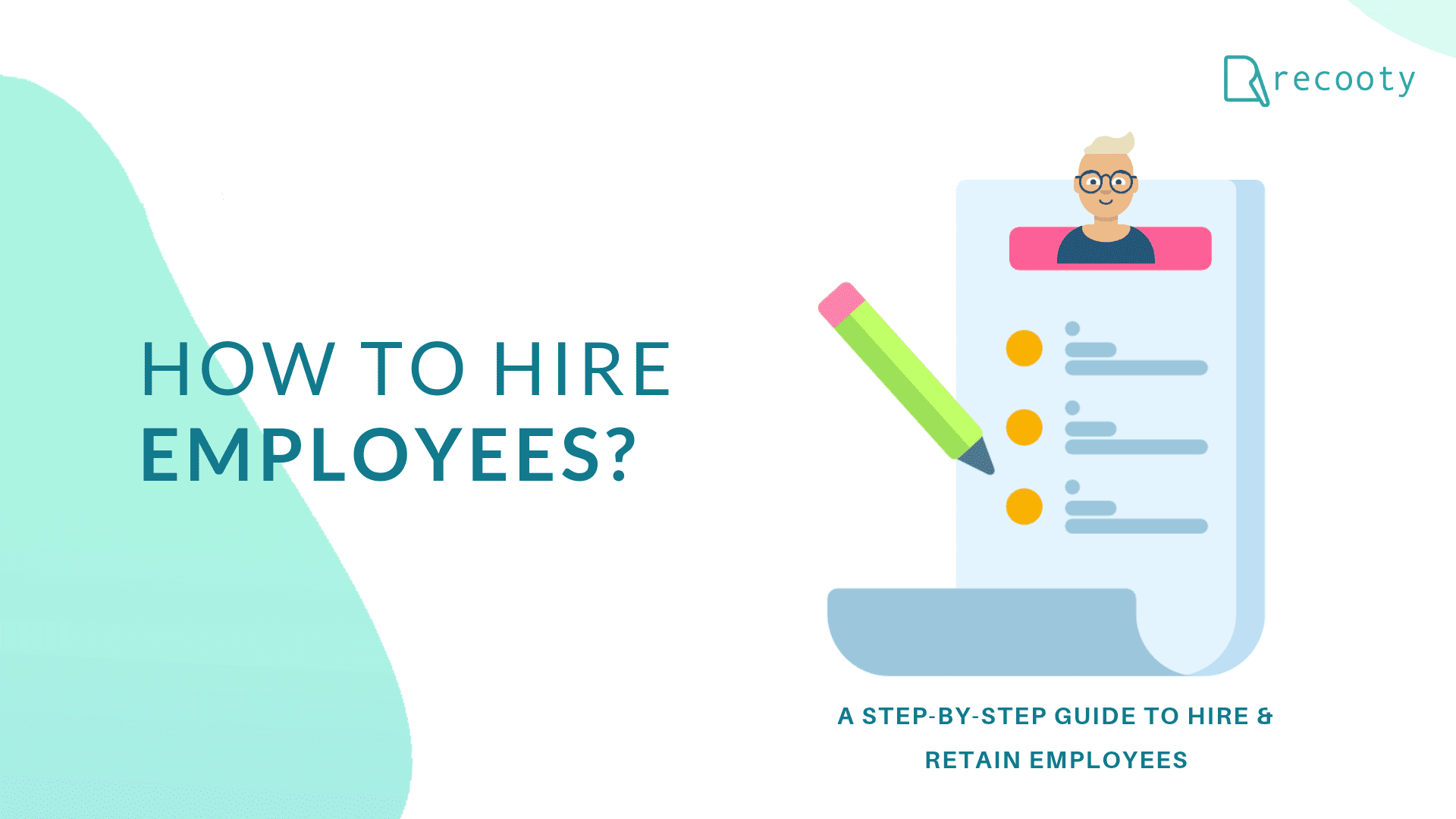
If you hire good people, give them good jobs, and pay them good wages, generally something good is going to happen.”
– James Sinegal
A business can only be as good as the people who keep it going. The employees, as well as the job applicants, hold a lot more importance than the customers of a company. They are the most valuable brand ambassadors a company can have. To be able to successfully sell a brand to paying customers, the employees need to be connected emotionally to the company’s goals and values. Whether you are hiring your first employee or adding a member to your existing team, it is extremely crucial to find the best fit. Hence hiring worthy and highly productive individuals is the first step that needs to be taken by any company to achieve great heights of success.
Over the years, the dominance and control of the hiring process has shifted significantly from employers to job seekers. It’s all about the employees now and with the shift of power, the competition for hiring the best employees has become extremely fierce. To hire and keep the best employees, recruiters need to stay updated with every aspect and step of their hiring process. But creating and maintaining a hiring process from the scratch can really be a tedious and intimidating task.
That’s why, here’s an article to walk you through the whole hiring process step-by-step, from the initial step of job posting all the way through to extending an offer, recruiting and finally onboarding an employee.
1. Do Your Research:
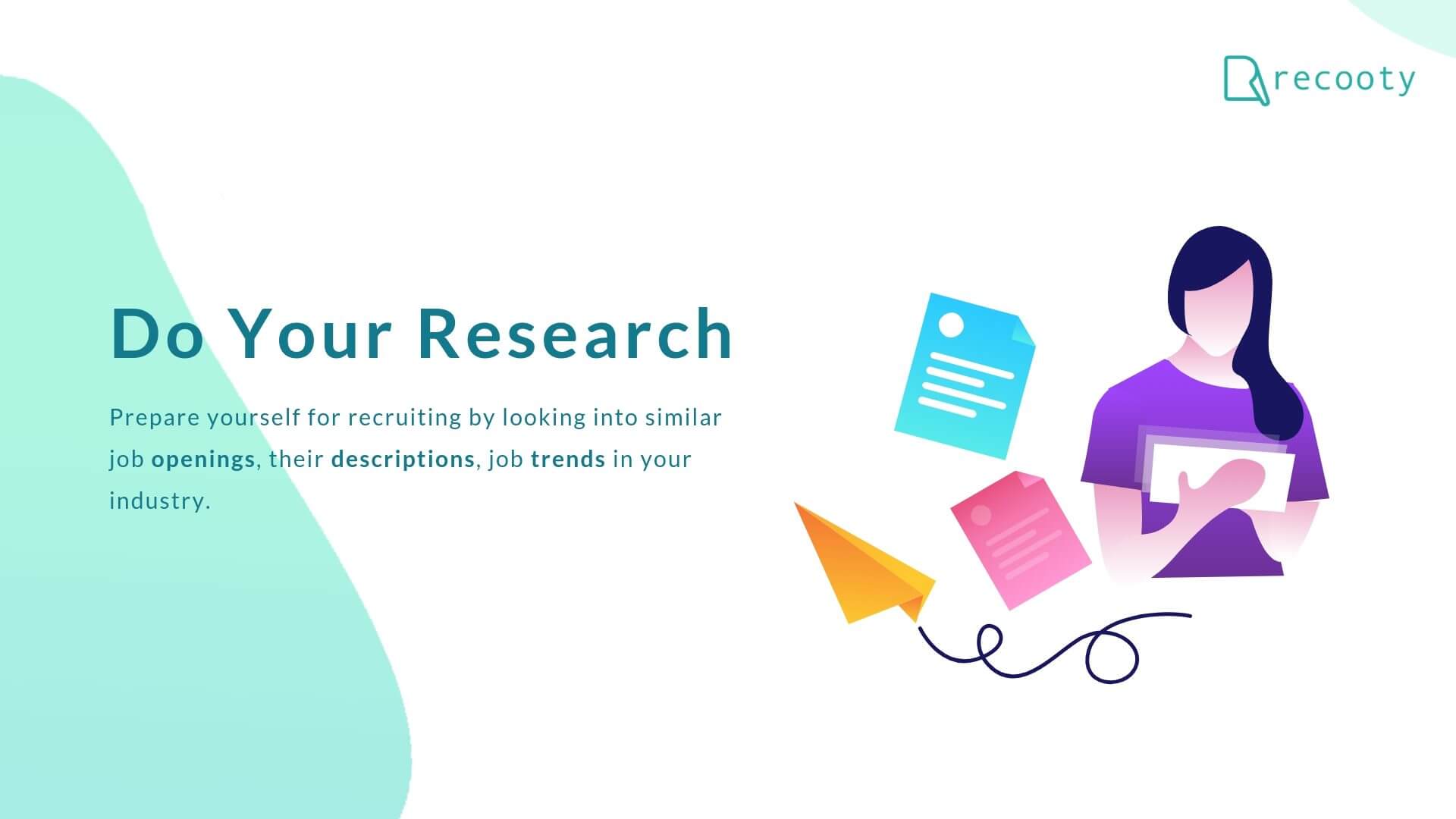 The very first step at efficient and successful hiring is knowing what you need. Prepare yourself for recruiting by looking into similar job openings, their descriptions, job trends in your industry, the keywords used and resumes of the qualified candidates to understand what skills are required for roles and responsibilities that you’re hiring for.
The very first step at efficient and successful hiring is knowing what you need. Prepare yourself for recruiting by looking into similar job openings, their descriptions, job trends in your industry, the keywords used and resumes of the qualified candidates to understand what skills are required for roles and responsibilities that you’re hiring for.
2. Create An Employer Brand:
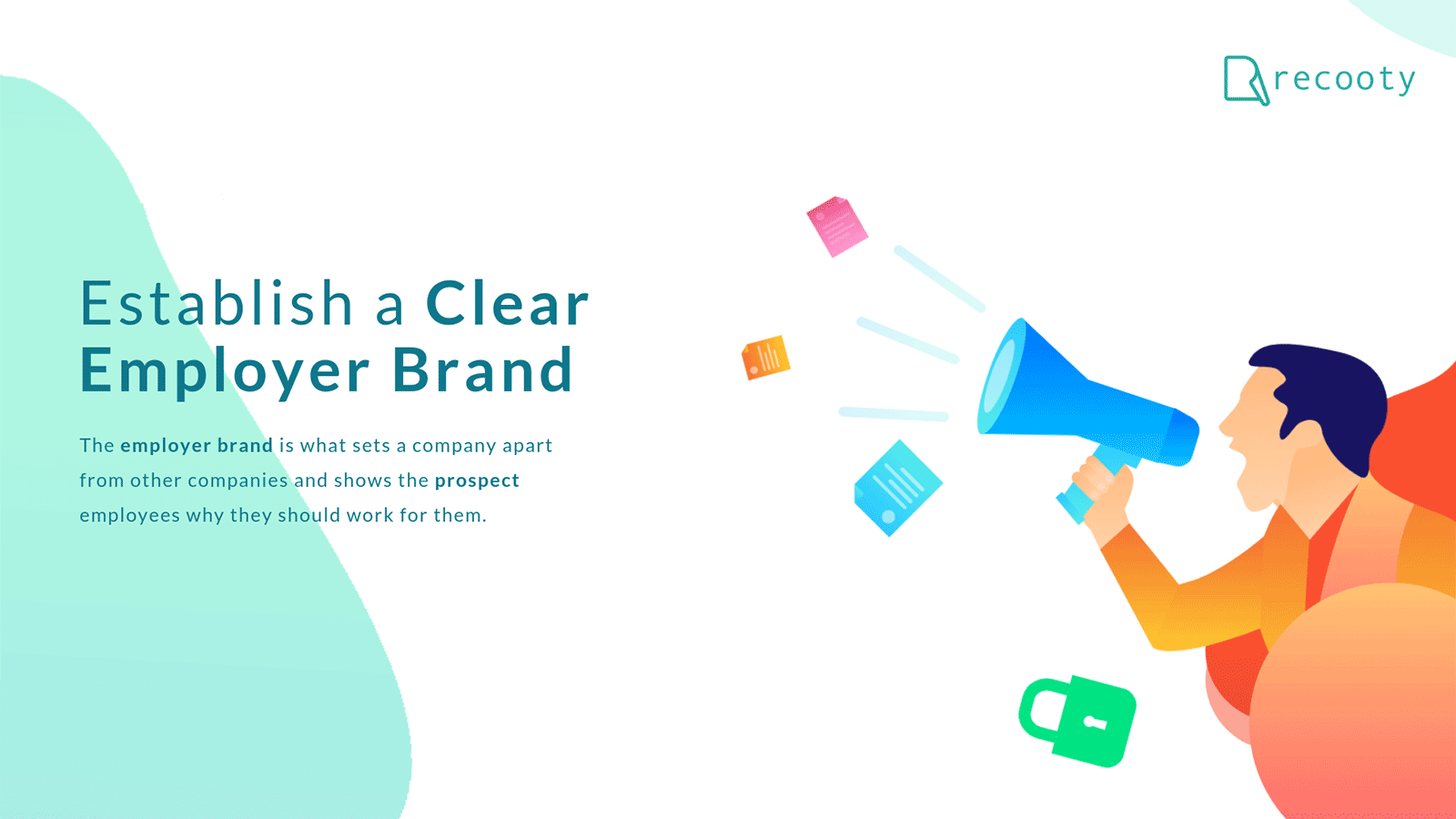
Successful hiring doesn’t only involves new hires, but it is, more importantly, ensuring that your company is the type of firm that high-quality candidates want to work for. Great candidates don’t just choose on the basis of the job description, you need to focus intensely on your employer branding. Employer branding is basically how a company is perceived by prospective or current employees. Having a positive employer branding doesn’t only help to hire and retain great talents but it also amplifies the future hiring scope for a company.
3. Select a Highly-Clickable Job Title:
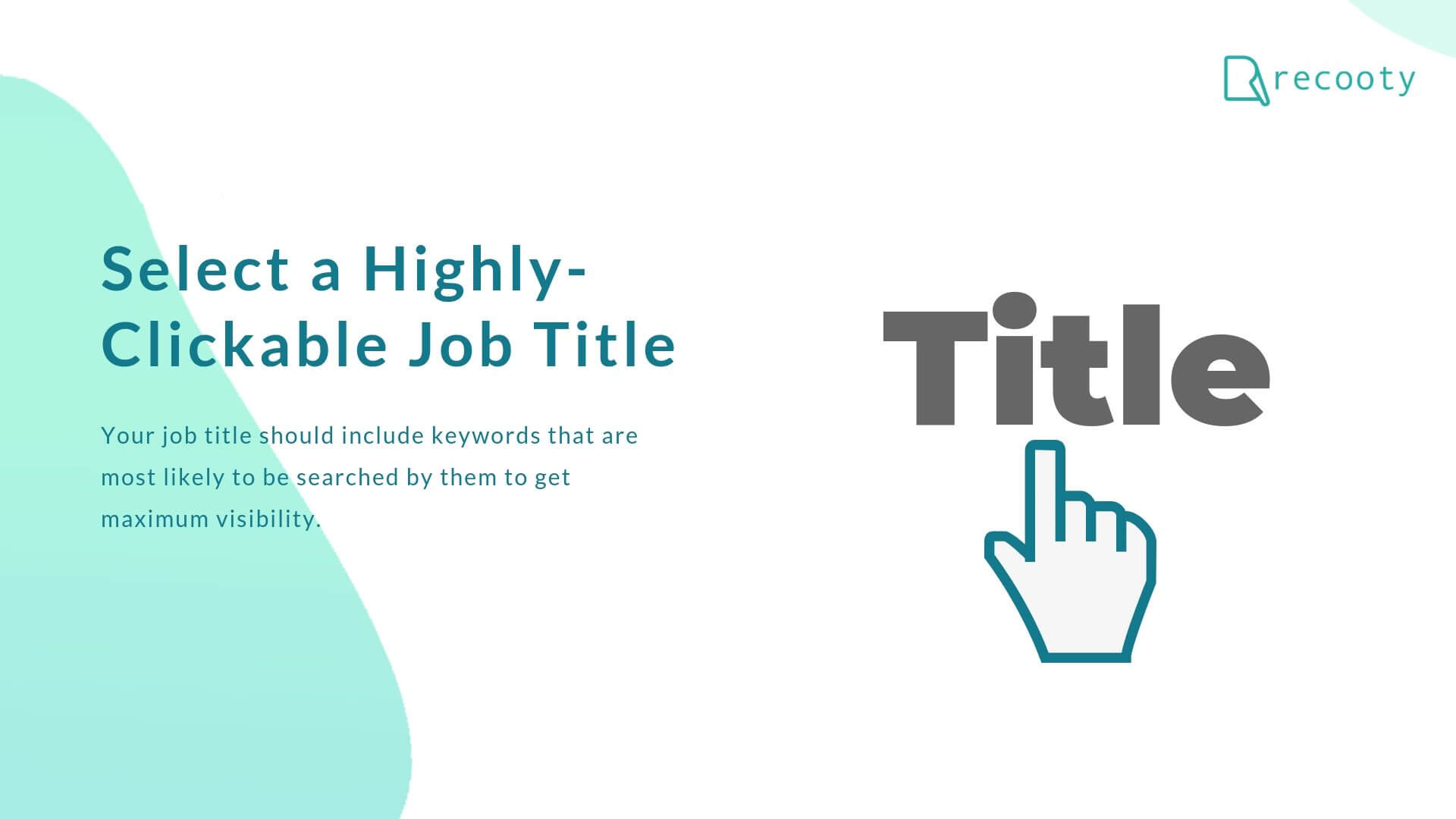
A job title is the first element that a job seeker sees while looking for a job. That’s why, the job title should be simple, descriptive and crystal clear, so clear that the candidate gets a rough idea about his responsibilities just by reading it. Job seekers usually Google whenever they’re looking for a job. That’s why job titles should include keywords that are most likely to be searched by them to get maximum visibility.
4. Create Great Job Descriptions:
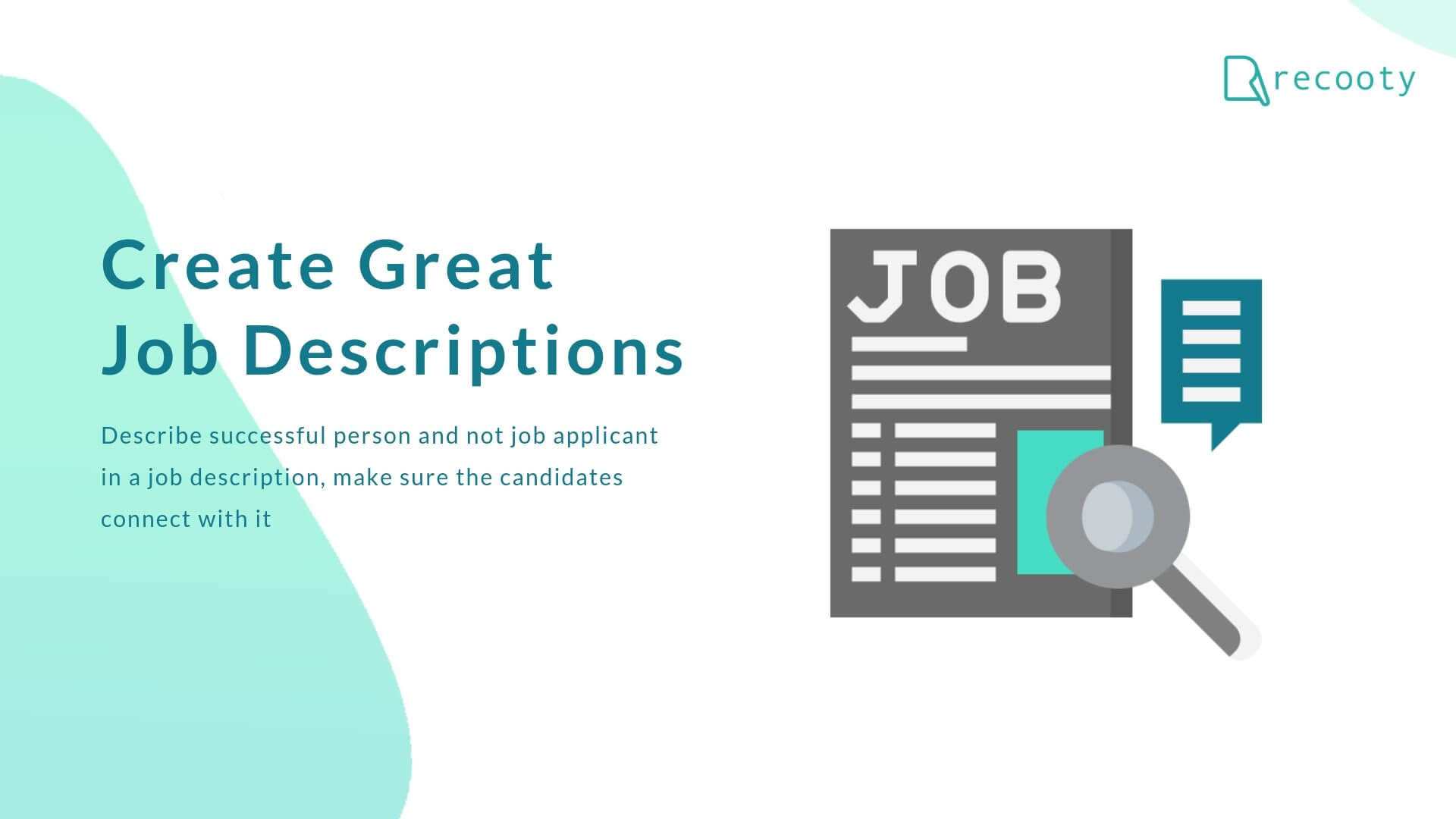
A job description is the most important element that represents a company to its prospective employees. So, after being done with the job title, recruiters need to create an effective job description that stands out from the crowd. Describe successful person and not job applicant in a job description, make sure the candidates connect with it. Following the best practices for creating clear and meaningful job descriptions will definitely lure in and fetch great talents.
5. Consider Posting Jobs on Multiple Platforms:
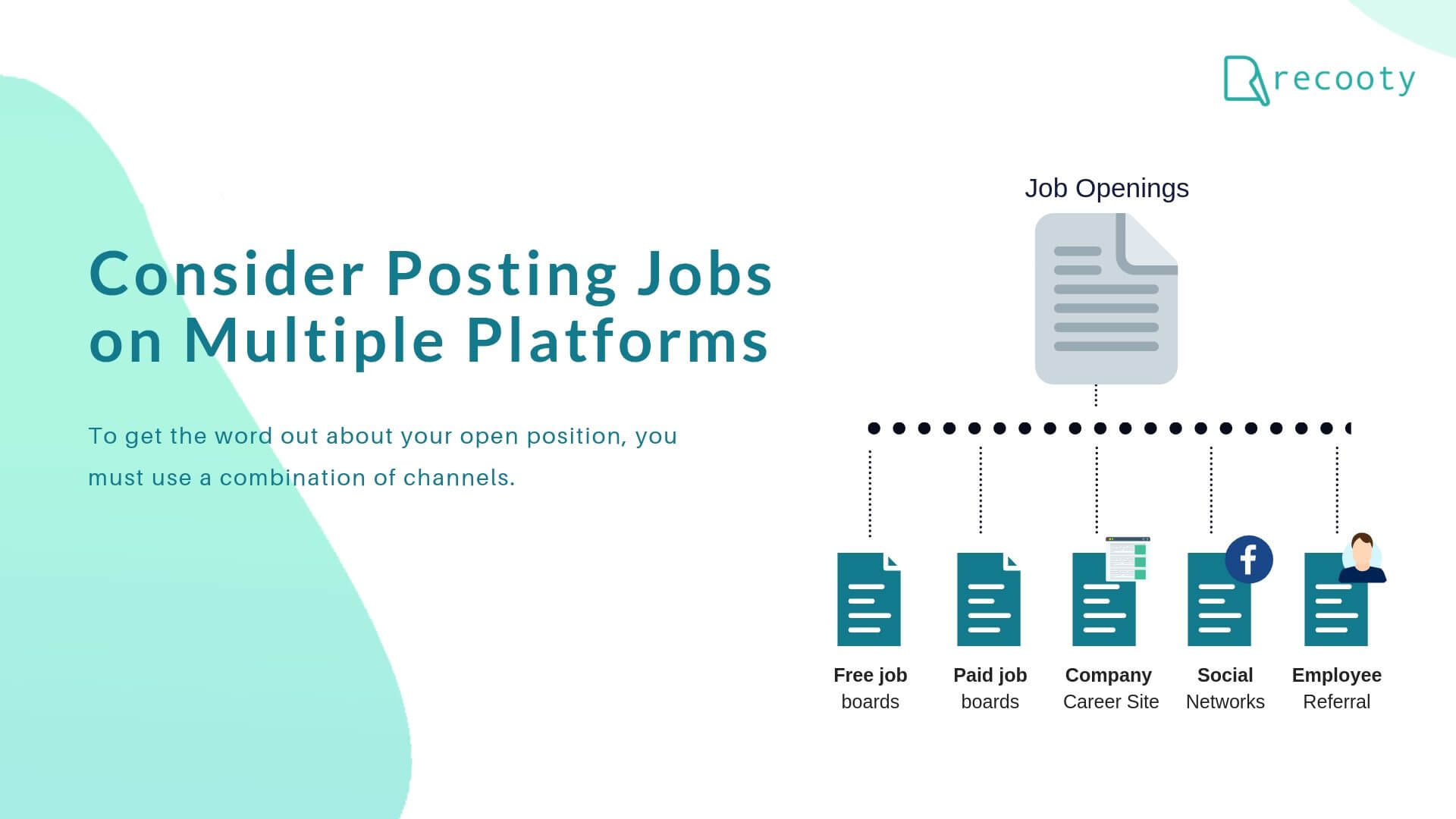
Once getting decided with an appropriate and relevant job title and description, in the next step you need to make sure your job opening gets the maximum exposure by multiple paid and free job posting sites and talent pool. To get the word out about your open position, a combination of channels is used. Consider posting the job opening on various job boards to get maximum exposure. Candidates who are referred by your existing employees are often more knowledgeable about your company. Posting job openings on various job sites and social media platforms is yet another effective way to get high exposure.
Pro Tip: Recruitment software can offer you one-click job posting on free and paid job boards, career site and more. Also, you can review application, schedule interviews and hire, all at one place.
6. Review and Filter Applications:
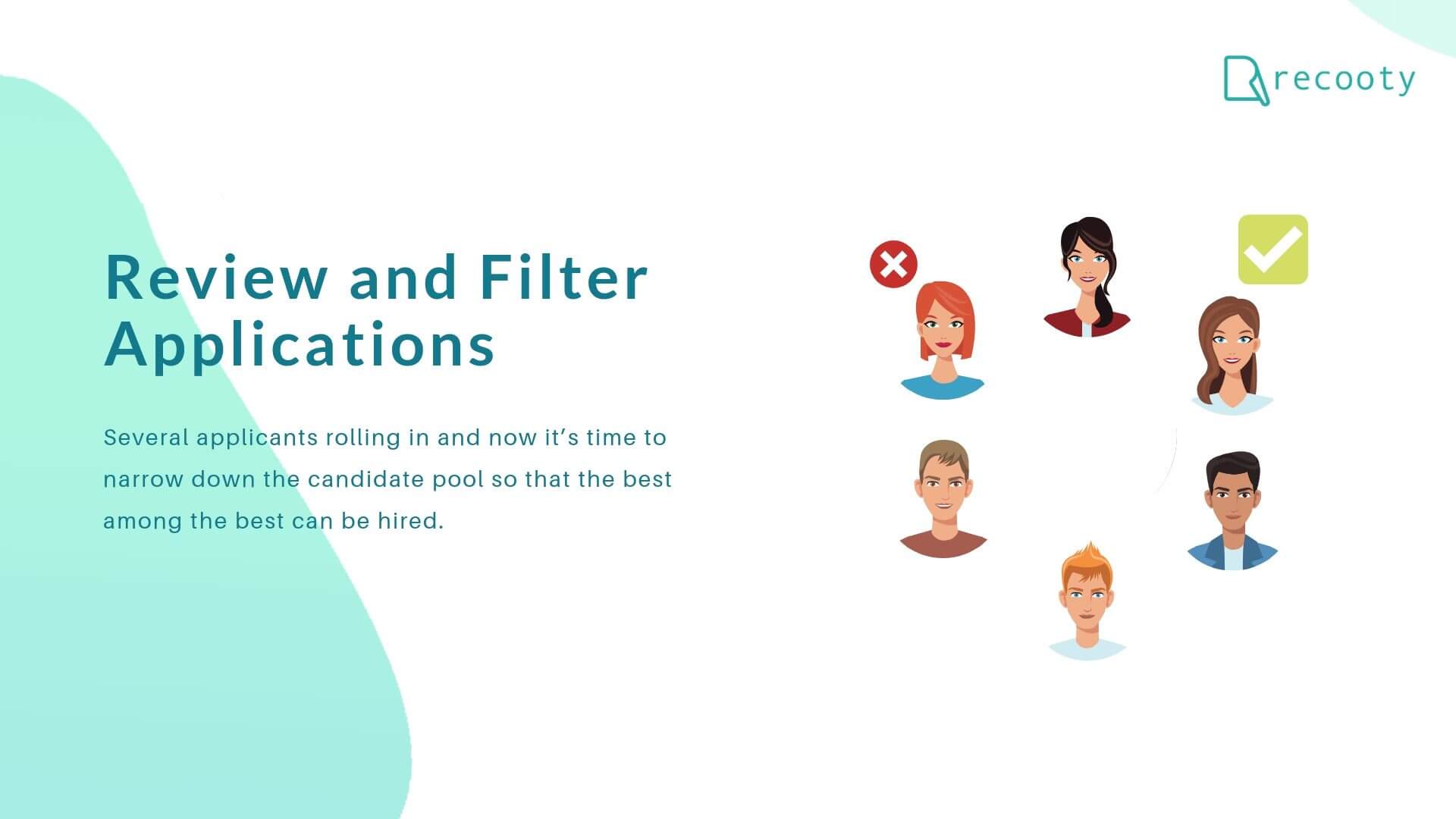
After getting the word out, recruiters will receive several applicants rolling in and now it’s time to narrow down the candidate pool so that the best among the best can be hired. Filter out the candidates whose resumes and application don’t match the mentioned keywords of the job description and send them a rejection email immediately. Analyze the relevance of the received applications closely and shortlist the final slot for the further process.
7. Run Background Checks:
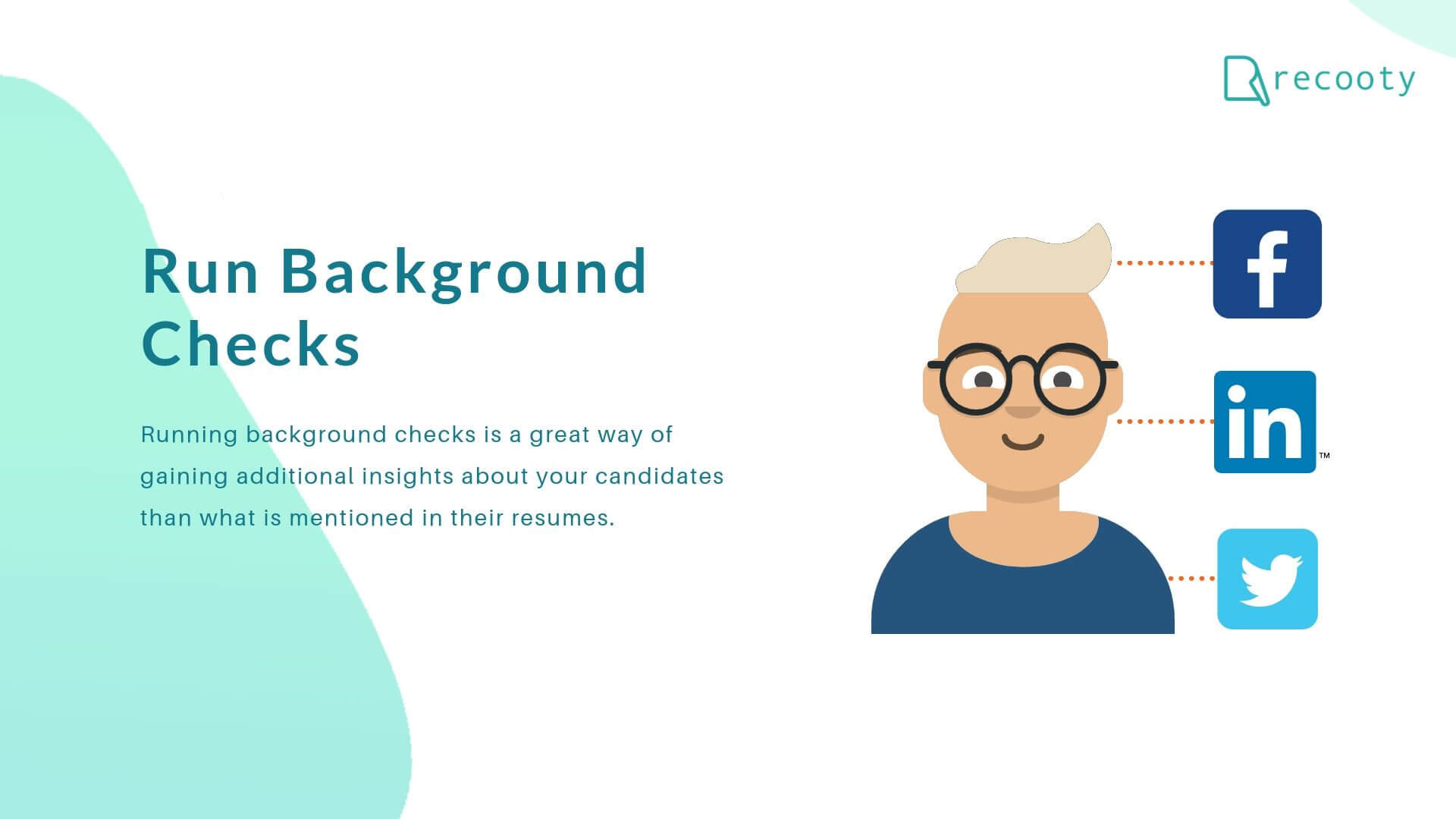
Running background checks is a great way of knowing more and gaining additional insights about your candidates than what is mentioned in their resumes. Go through their social media accounts, inquire why they left their previous jobs, what kind of a college did they graduate from. It can help you verify their skills, and ensure that you are about to hire employees who can keep up to your ethical requirements.
8. Interview to Select the Best Candidate:
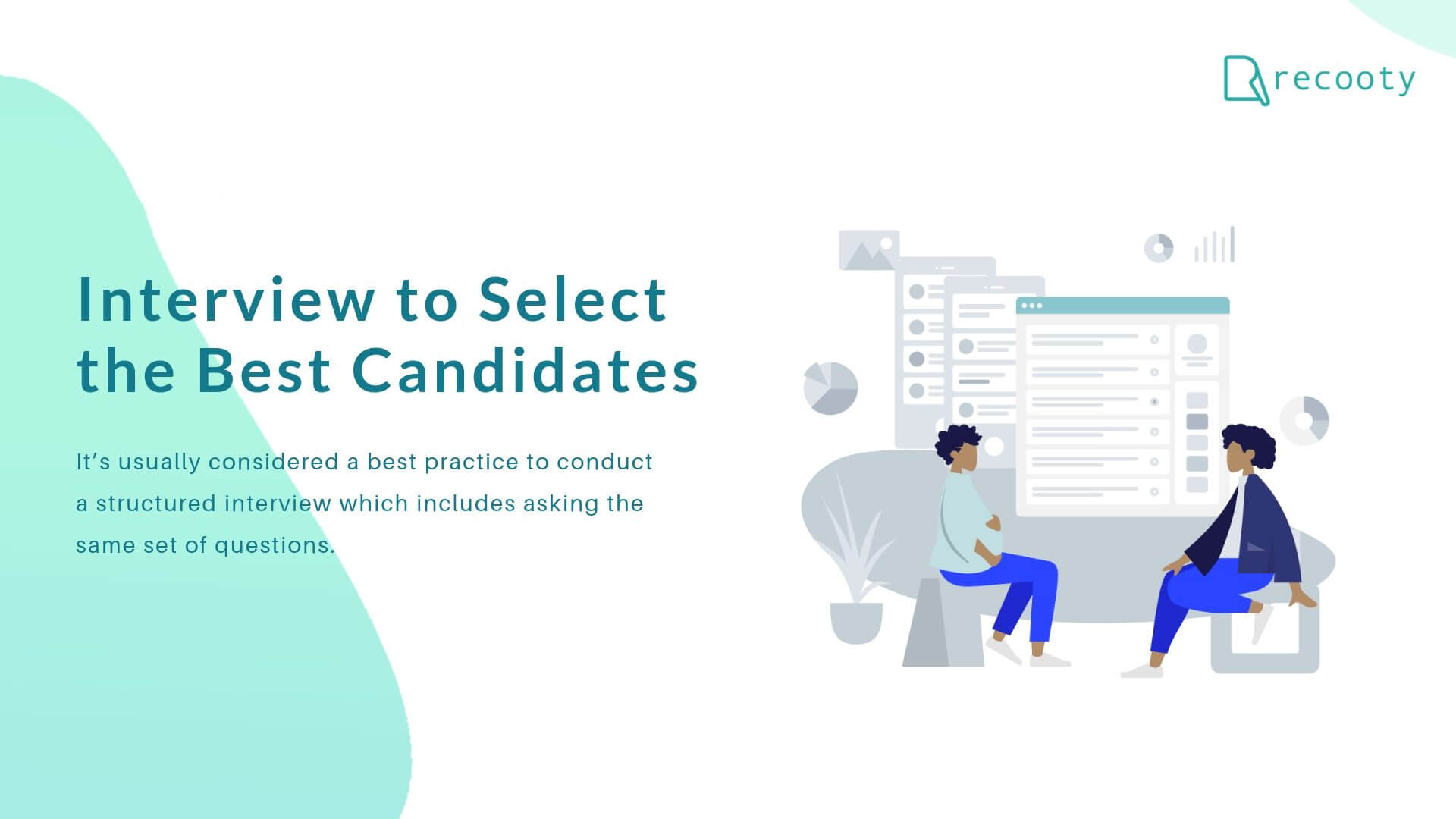
An interview is the final and most important step of the hiring process that’s why you need to be fine-tuned with your interview process. It’s usually considered a best practice to conduct a structured interview which includes asking the same set of questions, assigning them the same tasks and situations and then evaluating them equally with the same reference. The questions should be strategic that reveals the skills, qualification and important personality traits of the candidates.
9. Set-Up an Efficient Onboarding Process:
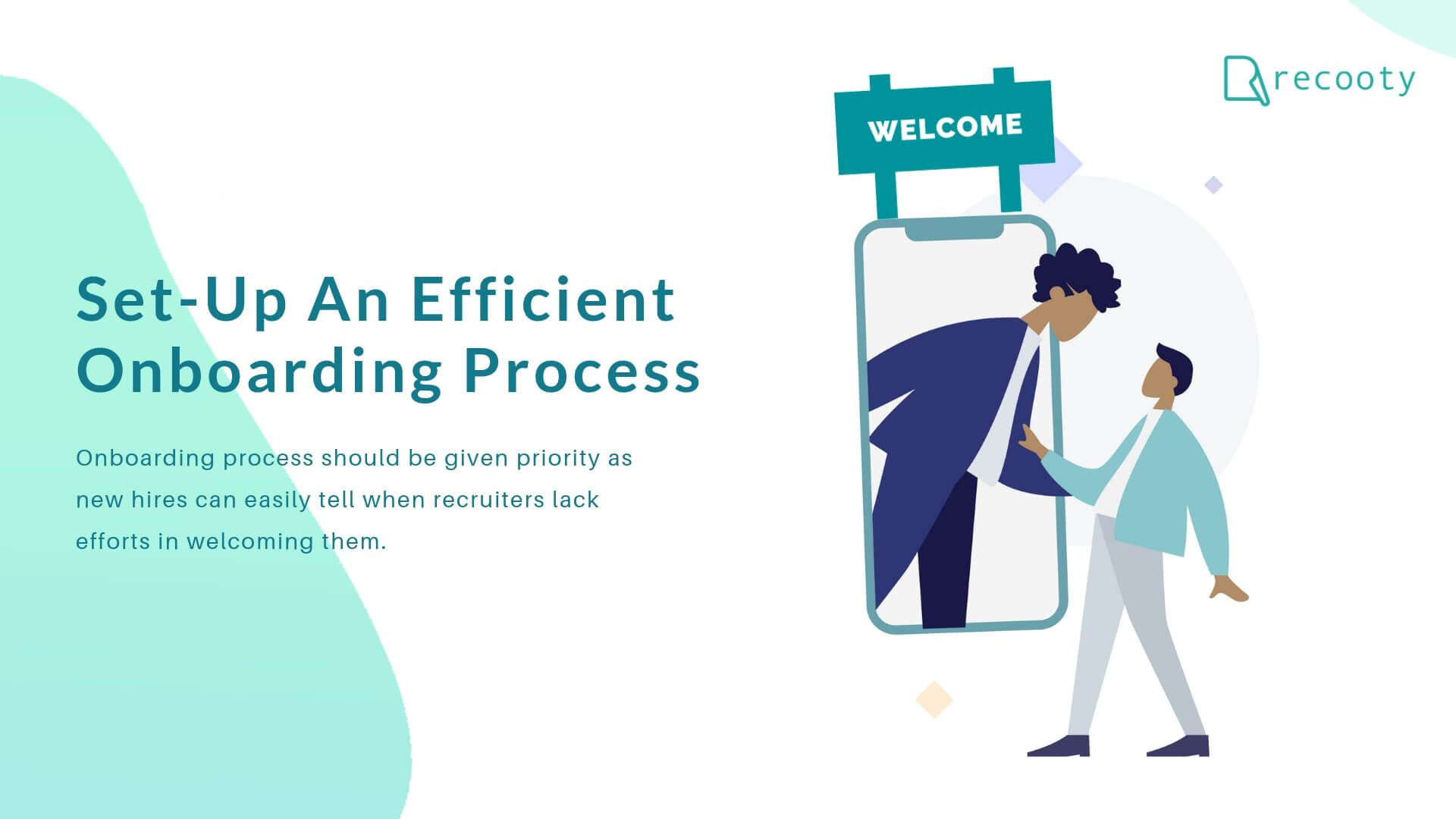
Once you’re done with testing the candidates in every way possible and then selecting the best, the next and most important step is getting the new employees on board and make sure they’re successful and most likely to stay. Onboarding process should be given priority as new hires can easily tell when recruiters lack efforts in welcoming them.
10. Develop Employee Retention Strategies:
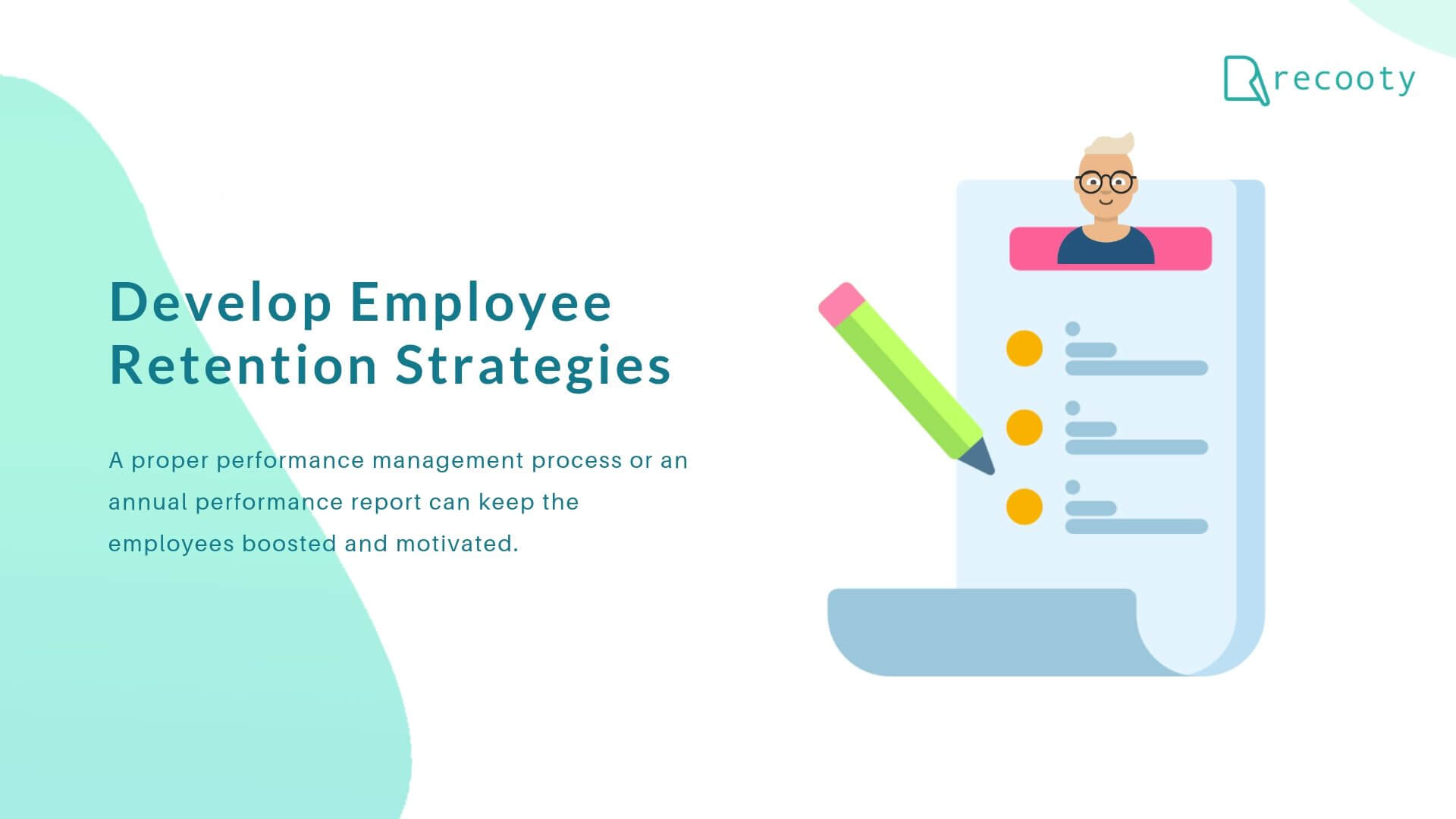
When you deal with hiring and training the employees, it becomes very important to retain the employees to make sure your company is well-staffed. That’s why developing an employee retention strategy is very crucial. A proper performance management process or an annual performance report can keep the employees boosted and motivated. Giving regular feedback about their work and making sure they know their work is appreciated is yet again another great strategy that can keep them motivated.
Happy Hiring!
Originally published on: https://recooty.com/blog/how-to-hire-employees-a-step-by-step-guide/
Subscribe
All the recruiting news you see here, delivered straight to your inbox.
Just enter your e-mail address below
RecruitingBlogs on Twitter
Groups
-
Recruiters On LinkedIn
1801 members
-
Corporate Recruiters
316 members
-
Recruiting tips for begi…
180 members
-
The Recruiting Bar
190 members
-
Recruiting Humor
222 members
-
News from the Recruiting…
34 members
-
Contractors Recruitment
62 members
-
Recruitment Process Outs…
194 members
-
Virtual Recruiters Netwo…
619 members
-
Independent Recruiters
530 members
© 2025 All Rights Reserved
Powered by
![]()
Badges | Report an Issue | Privacy Policy | Terms of Service
About
With over 100K strong in our network, RecruitingBlogs.com is part of the RecruitingDaily.com, LLC family of Recruiting and HR communities.
Our goal is to provide information that is meaningful. Without compromise, our community comes first.
Join the Network!
RecruitingDaily.com
One Reservoir Corporate Drive
4 Research Drive – Suite 402
Shelton, CT 06484
Email us: info@recruitingdaily.com

You need to be a member of RecruitingBlogs to add comments!
Join RecruitingBlogs